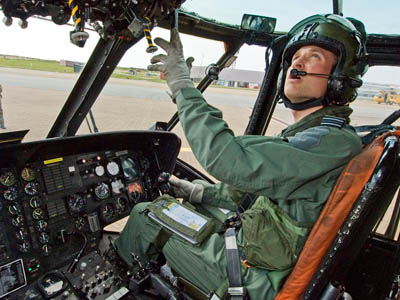Prince William has qualified as a captain for search and rescue helicopters in the Royal Air Force.
The Duke of Cambridge, who is patron of Mountain Rescue England and Wales, will now be in charge of flying missions, including those to rescue stricken walkers and climbers in Britain.
The prince, who has been a qualified search and rescue Sea King pilot for almost two years, passed a two-day test and qualified as a captain at the end of May.
Prince William will continue to serve with 22 Squadron of the RAF at Valley on Anglesey, where he has been known as Flight Lieutenant Wales.
His operational captaincy qualification means he will have overall responsibility for the helicopter’s crew and casualties as well as the aircraft itself.
The airborne test scenarios involved a search for a yacht in trouble, followed by a search for people in the water.
Prince William and his crew then had to put out a simulated fire on a large survey vessel before being sent to search for two missing kayakers.
One of the dummy kayakers had to be rushed to hospital with the winchman conducting mouth-to-mouth resuscitation and a cardiac massage en route.
With the airborne tests successfully completed, Flight Lieutenant Wales and his crew were then called out for a real-life rescue operation where a rig worker with chest pains was transferred from 48km (30 miles) off the Lancashire coast to Blackpool Hospital.
Officer Commanding 22 Squadron and Flight Lieutenant Wales’s examiner Wing Commander Mark Dunlop, said: “Flight Lieutenant Wales demonstrated the required standards needed for the award of Operational Captaincy.
“Due to the nature of search and rescue operations, the required standards are always set at a very high level.”
The UK’s military search and rescue Sea Kings, which carry out 90 per cent of their work in civilian operations, are due to be retired in 2016, when the service will be privatised.
Prince William, in his role as patron of the umbrella charity for mountain rescue teams south of the border, has in the past spent time with the volunteer team members, including making an ascent of England’s third highest peak, Helvellyn, with mountain rescuers.
